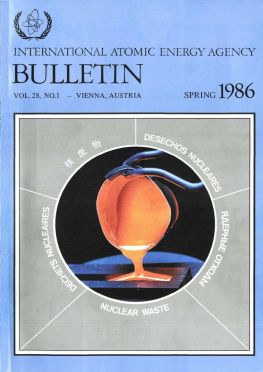Radioactive waste management
28-1
Oct, 2025

Studies conducted by the IAEA and NEA/OECD have shown that about 200,000 metric tonnes of heavy metal (Mt U) will accumulate by the year 2000 from water-cooled reactors worldwide. Not more than one-fourth of it will be reprocessed. Countries now are looking for the best way to increase storage capacities, in view of delays in commercial construction of fast breeder reactors, high reprocessing prices, and an over-supply of uranium. The possible storage solutions, experiences in long-term storage, geological disposal options, assessing long-term safety, site considerations and packaging spent fuel are discussed here